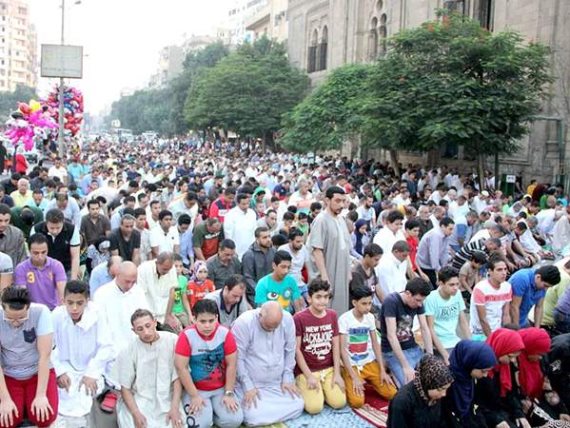To many people, Ramadan means food and good company. As a result many of us forget about their workout routines or just choose to ignore them, which can be understandable. Before iftar, if you are fasting, you're dehydrated, hungry or just plain lazy. Then comes iftar time and you might be invited for a huge feast. After iftar, it's a good time to go out with friends and later in the night is sohour and bedtime.
A select few though manage to incorporate exercise into their lazy Ramadan schedules. Sara tells me she works out regularly in Ramadan to avoid gaining weight. “I go to the gym at around 2pm, I work out for two hours, then go home and sleep till iftar”, she says. “I know you lose muscle working out before iftar but it is the only way I can get my exercise in. Also, after iftar the gym is packed."
Rumor has it that working out on an empty stomach is great if you want to lose weight. Your body presumably goes to your fat stores directly and burns calories from fat only. Nirvana Zaher, training development assistant at Gold’s Gym, tells me that this is a complete myth. “I am not for fasting and exercise, she says, explaining that when we are fasting we have no glycogen (carbohydrates) in our body. When we are low on glycogen, our body goes into starvation mode and starts storing fat. Our bodies go to fat stores once they deplete all carbohydrates present in them, which is close to impossible unless you're unfortunate enough to be in a place where there is a famine. At that point our bodies start burning muscle – which none of us wants.
Burning muscle lowers our metabolism, which means slower fat burning. “This will have a negative repercussion after the 30 days. You simply start yoyo-ing” and “the harder you train the more you burn” Zaher says. It’s as simple as that. The more calories you burn the more you lose weight. It doesn’t matter if these calories are from fats or carbohydrates. “Working out after iftar is definitely a lot better,” continues Zaher. She says it is better to exercise on a small meal rather than feasting before heading to the gym.
If you have to work out before iftar, keep it low intensity and avoid weight training. Zaher explains that low intensity means that you can carry on a conversation with the person on the treadmill next to you. As fasting is already tiring for your body, you need to keep your workout at less than an hour. According to Zaher, Gold’s Gym pre-iftar spinning classes are limited to 40 minutes only, while they usually last an hour.
After iftar drink a lot of water and electrolyte replenishing drinks (like Gatorade) to hydrate and replace the water your body lost during exercise. Zaher told me that dehydration affects the capacity of the heart and muscles to contract properly.
Some do it midway; Mohamed Wahid works out exactly at the time of Iftar. That way he has time to hang out with friends at night and at the same time avoids the side effects that Zaher told us could result from a pre-iftar workout. “I take with me a banana, juice and water” Wahid tells me. He eats the banana for iftar then works out while hydrating on water and juice. That way he seems to be striking the perfect balance.
To sum up, here are five tips to working out in Ramadan:
1. Keep it at a low intensity before iftar (conversational pace)
2. Limit your workout to less than an hour before iftar
3. If you start feeling faint or nauseous stop immediately
4. Have a routine or plan
5. Hydrate, hydrate, hydrate




